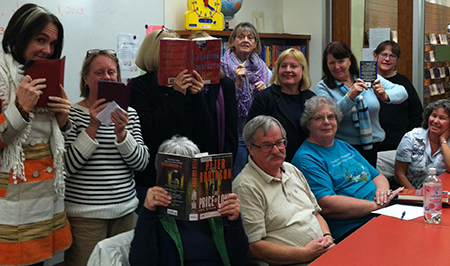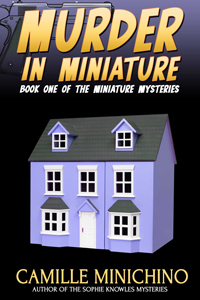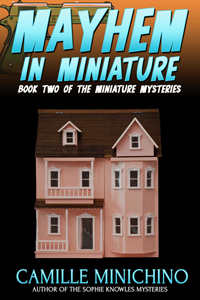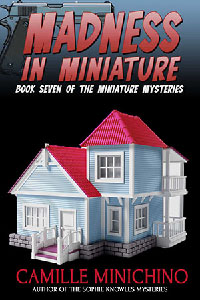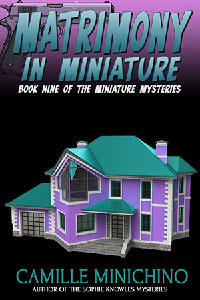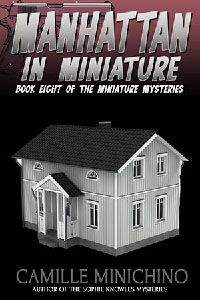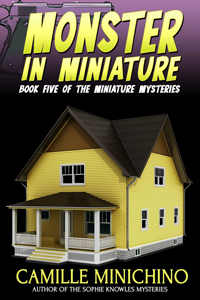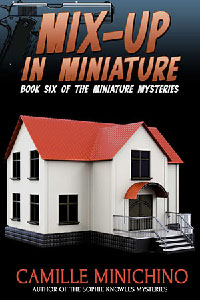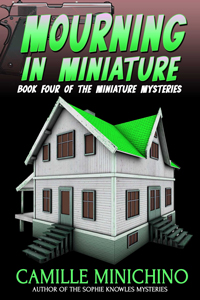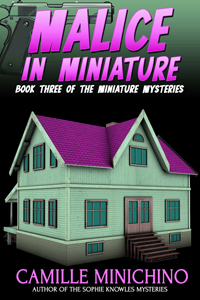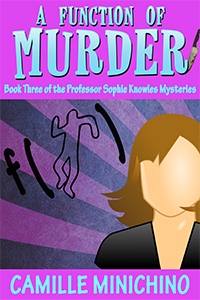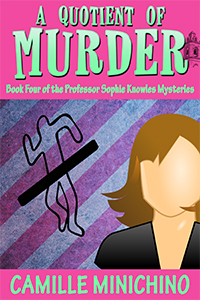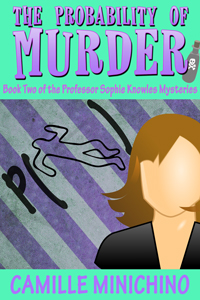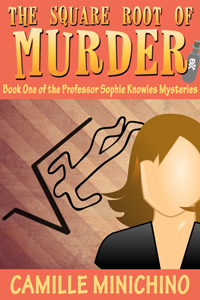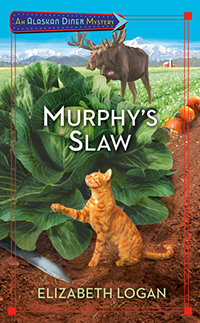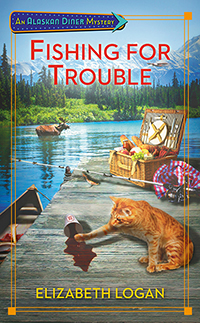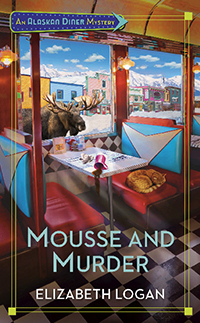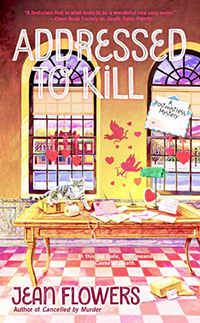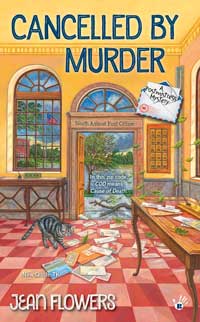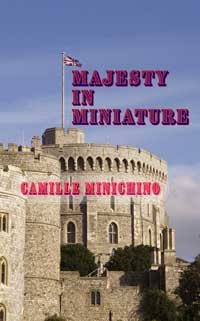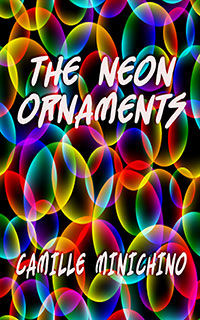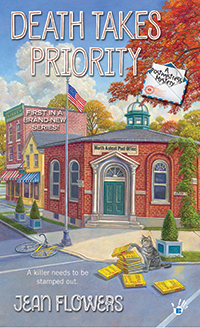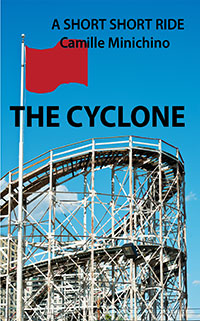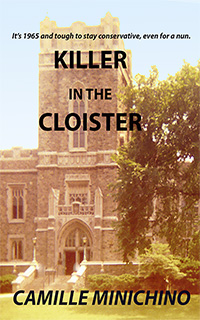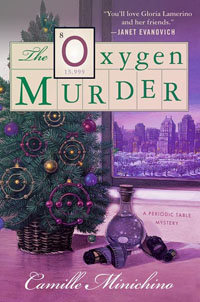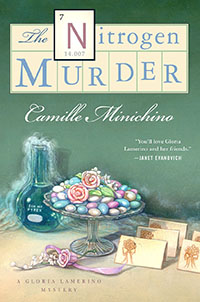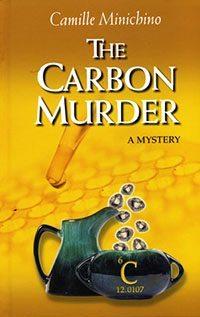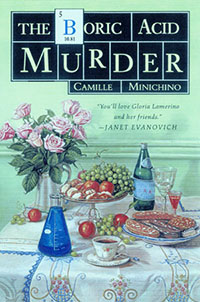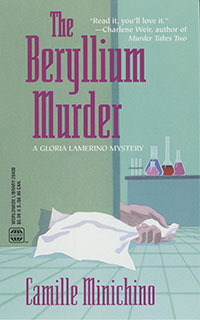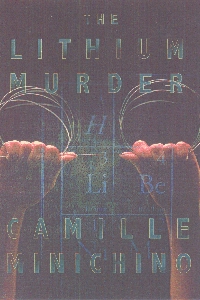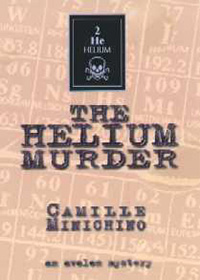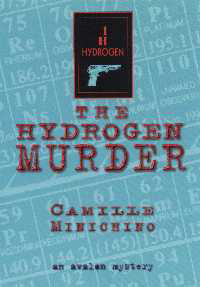In case you missed this post on TheLadyKillers . . .
I never met a book club I didn’t like.
The Past.
I started my first book club when I was teaching physics at a college in Boston. I’d noticed many of my students were reading science fiction: Stranger in a Strange Land (Robert Heinlein), Dune (Frank Herbert), Childhood’s End (Arthur Clarke), More Than Human (Theodore Sturgeon). These books seemed to engage them more than the text for my class: Eisberg’s Fundamentals of Modern Physics.
So I formed a book club to discuss science fiction novels and their relation to physics. I chose books that would illustrate the four forces—gravitational, electromagnetic, weak nuclear, and strong nuclear. Students in other majors joined us as we met informally, one evening a week, in the student lounge. After about 3 years of these regular meetings, I was able to convince the administration that “Physics Through SciFi” was worth academic credit.
Since then, I can’t remember not being in a book club.
The Present
Currently, I’m involved in two clubs. One is a nonfiction group that has been meeting since the early nineties. When two members moved to Houston, we set up a laptop dedicated to Skyping them in. I’ve read books I never would have chosen if it weren’t for this group—for example: The Big Roads, The Story of the Engineers, Visionaries, and Trailblazers Who Created the American Superhighway, by Earl Swift; and most recently, One Nation Under God, How Corporate America Invented Christian America, by Kevin Cruse.
The second group is a mystery group that now meets at our local library. There are members in the group who date back to a club that met at an indie book store 30+ years ago, then in our homes when the store closed. Some of them agreed to pose tonight just so you could see them at work! You can tell who are the shy ones.
Coming up, in case you’re in the neighborhood, the book for March is Ruth Rendell’s No Man’s Nightingale. It’s always fascinating to see what nuggets the various members pick out to discuss, even from a book may not be well-liked. As I writer, I’m always curious about what works and what doesn’t work for readers. One woman might say I didn’t like the plot, but the characters were great, so I’ll give it a 9. And the next person might say, The characters were great, but the plot was lame, so I’ll give it a 2. Fascinating!
DIY
I thought I share a little how-to, as if facilitating a book club is a craft, like beading or writing!
1. Collect data. At the first meeting, we discuss who likes what and choose the books for a few months ahead, making sure everyone has a say in some way. We try to be egalitarian with respect to the authors’ gender and ethnicity, the range of subgenres, a variety of settings, and any other group preferences.
2. Set out ranking rules. We use a scale from 1 to 10, where 10 is “best book I’ve read since Poe’s “Telltale Heart,” and 1 means “I threw it across the room.” One member recently added a 0, which means “I burned it.”
In the middle is “I would (or would not) recommend it.” Ranking is based for the most part on three factors: characters, plot, writing.
3. Rank. At the beginning of each meeting, each member gives a ranking with a one liner: “I rated this a 10 because I didn’t yawn once while reading it.” This gives everyone, even the shyest, a chance to express an opinion before things get out of hand.
4. Discuss. I usually start with those who ranked the book the farthest off the average. “How come everyone else gave this book a 2, Oscar, and you gave it a 10?” or “Isabel, you’re the only one who claimed to have taken a match to the book and gave it a 1. How come?”
5. Be prepared. The facilitator needs to be ready:
• with questions that encourage discussion
• with familiarity of the author’s other work to give the current book context
• with insights that get people talking about deeper issues in the book
• with specific passages marked as examples, in support of her/his own opinion or those of others.
Some book clubs fall into disrepair when the talk is 80% social; others prefer it that way. I prefer clubs where the discussion is about the book of the month first, with chatting about shoes and kids a very distant second (okay, you caught us going out for ice cream last night, but that was after the meeting).
I spent many years of my life doing physics and math—very social careers. No one does science out of her garage any more; it’s a team endeavor. My concern when I turned to writing was that I’d never last, that it was too solitary a profession. I’m so glad to have been wrong!
While critique groups (I’m in three of those) satisfy the need to share writing, book clubs are a great way to share what I’ve read, to meet and bring together others who love to read and are eager to talk about their discoveries. Often I’ve given a book a 5 to start with and changed to an 8 after hearing from the group about things I missed.
With critique groups, writers’ organizations, conferences, and book clubs, I have enough interaction to last through the days when it’s just me and Word for the Mac, and, of course, the casts of characters in my series.
If you’re interested having me visit your club, gather around the monitor and Skype me in! Email address on my website.
Both comments and pings are currently closed.
 Filed Under :
Filed Under :  Feb.25,2016
Feb.25,2016